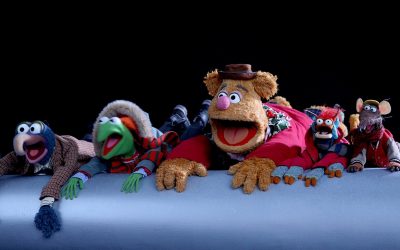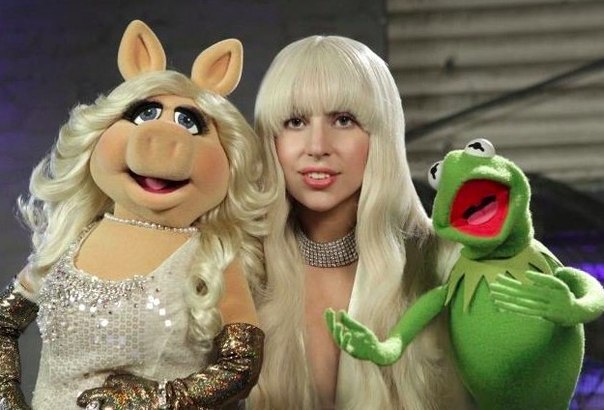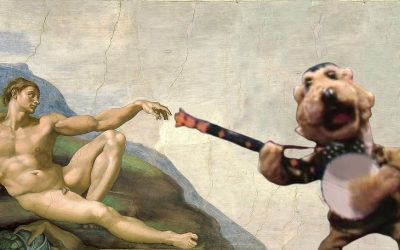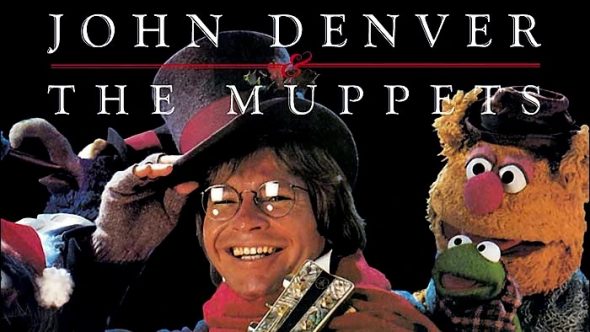
Christmas is the one time of year when everyone who likes The Muppets loves The Muppets. I guess the same goes for Jesus too, but it’s weirder that it happens to Muppets. It’s especially strange that The Muppet Show gang’s first foray into making Christmas productions was, of all things, A Christmas Together, which continues to be part of many families’ Christmas traditions to this day.
The 1979 TV special was not especially well-received, and it never got a home video release, forcing those of us who want to watch it to settle for the horrendously low-quality copies on the interwebs. The special seems to have been made to promote the much-better-received 1979 album of the same name, and both pair The Muppets with the same non-Muppet: John Denver. Good old Johnny D.
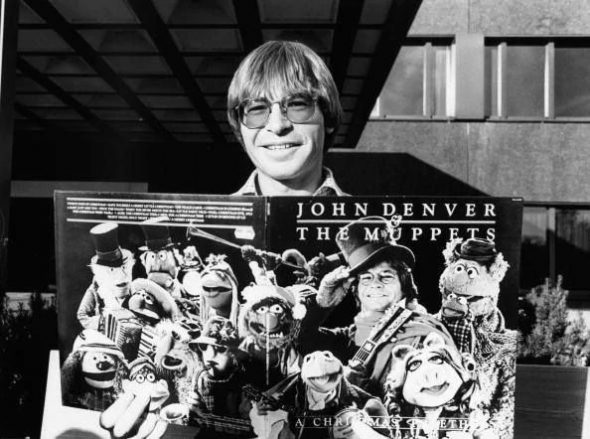
You may ask, as well you should, why, out of all the celebrities they could have chosen to make an album with, did they go with John Denver? That is the question! The Muppets were perhaps the most popular entertainers in the world, and I have to imagine they could have cut a record with any ‘70s icon they wanted – Cher, Stevie Wonder, Barbara Streisand, Chewbacca, a lava lamp, or even Big Bird. Why did they go with the sappy country boy half the world wanted to strangle?
The easy answer is that he and Jim liked each other. I prefer the more complicated answer: The Muppets used John Denver to get inducted into the world of Christmas icons. Before The Muppets were a Christmas brand, John Denver was unquestionably a Christmas brand, and he would continue to be long after his Muppet collaborations. Let’s go through a very brief history of John Denver and Christmas, shall we?
Denver actually started making moves toward becoming a Christmas act before he recorded a Christmas album. “Aspenglow”, from his 1970 album Take Me to Tomorrow is not technically a Christmas song, but it’s about winter snow on pine trees in Colorado, so he would later repurpose it for Christmas projects, where it fits perfectly. His subsequent album, Whose Garden Is This, inexplicably ends with an eerie take on “Jingle Bells” that makes me feel unspeakable feelings. With 1973’s Farewell Andromeda, he released his first original Christmas composition, “Please, Daddy (Don’t Get Drunk This Christmas)”, which was initially meant to be a funny song, but his feelings about the song grew complicated as he took the subject more seriously in later years. For better or worse, he continued to perform the song in his Christmas concerts decades later.
In 1975, he dropped Rocky Mountain Christmas, which had a secular A-side featuring new versions of the two original compositions mentioned above and a religious B-side consisting of five traditional carols and one new song. That new song was “A Baby Just Like You”, which Denver wrote at the request of “noted Joe Raposo stan” Frank Sinatra (shout-out to Muppeturgy) as a song for his granddaughter, Angela Sinatra, but Denver was also writing it for his son, Zachary. It turns out that Sinatra singing Denver doesn’t really work, but Denver’s performances of it are all lovely.
Rocky Mountain Christmas was a huge success. It was the best-selling Christmas album of 1975, it went 2x Platinum in the US, and its position on the Billboard 200 chart was either 35 or 14 depending on what source you use. It was marketed with a TV special of the same name featuring Olivia Newton-John, Steve Martin, Valerie Harper, and presumably the rest of the 1970s. It was that year’s big Christmas thing. Maybe that’s not such a big surprise. The best-sellers of previous years had often been in the same squeaky-clean, family-friendly, Bible-kissing vein, such as Glen Campbell, Jim Nabors, The Partridge Family, and The Waltons.
In 1976 and 1977, however, the best-selling Christmas album was Christmas Jollies, a disco album by The Salsoul Orchestra. Would this be the end for old-fashioned sentimental saps dominating the Christmas charts? Heck no! The Carpenters claimed the Christmas throne in 1978 with A Christmas Portrait, which would also be promoted with a TV special (in which The Carpenters’ actual parents, who are terrible on camera, meet Gene Kelly, and it is very awkward). That album continued to chart around the holidays decades later. The following year, Karen Carpenter would make a visit to the set of the TV special for the album that would dethrone her.
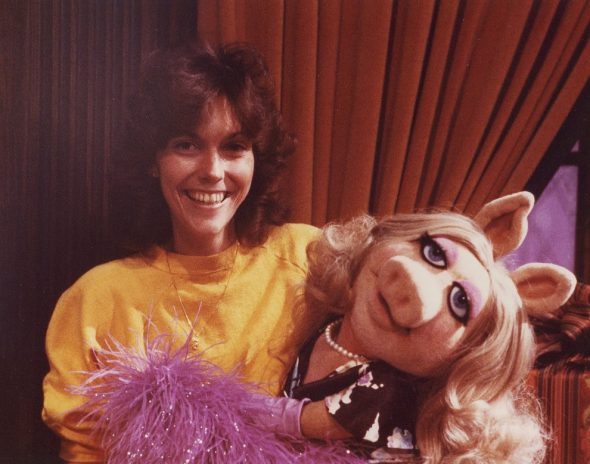
John Denver and The Muppets: A Christmas Together, the TV special, feels very much in keeping with the Carpenters’ Christmas specials (yes, “specials” is plural – there’s another one with Kukla and Ollie for some reason) except that it doesn’t have other celebrities. It has The Muppets! It’s great that network executives knew that audiences would accept The Muppets as a big enough presence to fill a narrative TV special – this particular cast of Muppets had never really done that before. This production doesn’t totally feel like a Muppet special, nor the previous John Denver special, and it’s not even a great ad for the record since its big production number isn’t on the album.
Of course, this didn’t matter, as the record was wildly successful anyway. Like Rocky Mountain Christmas, it was the best-selling Christmas album of its year. It reached #26 on Billboard’s Top LPs and Tapes chart, 34 on the Billboard 200, and was certified Platinum. Casual Muppet fans still listen to it today. A Christmas Together was the perfect combination of IP, bringing together the beloved Christmastime singer that won America over just a few years before with the stars of the most popular television show in the world. Better still, the tones of these two acts fit together kind of perfectly.
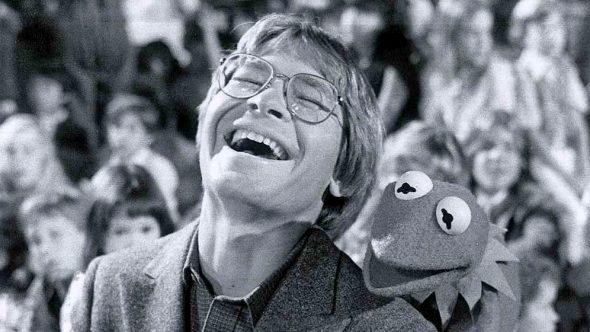
Jim and John were an incredible match for each other as talents and as human beings. There’s a great ToughPigs article from 2002 describing the special as “John Denver the evangelical Christian battling Jim Henson the hippie Christian”, and it captures what their relationship feels like to us, but not what it was. Denver was also very much a hippie who loved the environment and hated guns, and much of his early work with The Mitchell Trio was satirical novelty folk records criticizing the 1960s political right. He was cheeky, but also had great sincerity, and that’s very Jim.
Denver would go on to record more Christmas albums, and Henson would go on to make more Christmas specials, but the intersection of the two is, if I may get personal for a moment, the most essential part of my Christmas traditions. I would love to write about the album itself in greater detail, track by track, but I fear I would have nothing to say. To me, it’s all just perfect. Part of why I feel that way must be the fact that this album was my gateway to The Muppets. As a little kid, I knew the Sesame Street characters, but I didn’t have any frame of reference for Kermit’s other friends except for this album, which was enough to convince me to get to know them. I’m glad I did.
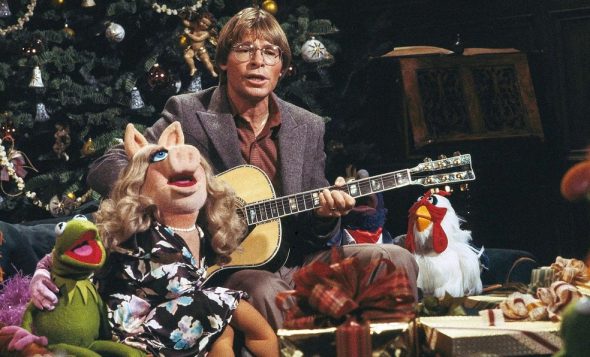
Click here to wish Merry Christmas to little Zachary on the ToughPigs forum!
by J.D. Hansel

